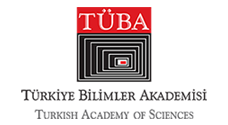The Transformation of the International System and Türkiye’s Increasing Role
The Transformation of the International System and Türkiye’s Increasing Role
The international system is undergoing a new transformation process caused by the COVID-19 pandemic, the Russia-Ukraine War, and the Israeli-Palestinian conflict. In this transformation process, such phenomena as climate change, global environmental problems, xenophobia, and technological competition are accompanied by the acceleration of great power rivalries, the rise of the South and regional powers, trade wars, the widespread pursuit of nuclear armament, the dysfunction of the UN institutions, the increase in proxy conflicts, and the emergence of new forms of terrorism. The power competition between the US, China, the EU, and Russia is bringing the post-Cold War order to an end and emphasizing the phenomenon of “chaotic multipolarity”. The state of chaos in the international system marks a period in which the US has abdicated its responsibility for maintaining global order, while China, as its main rival, lacks the will and capacity to shoulder the burden. Consequently, emerging global-regional risks and threats compel rising powers to become more self-reliant, prompting many regional players to prioritize “strategic autonomy” policies. This underscores the importance of adaptability, fostering new capacities, strong leadership, internal stability, and conducting effective diplomacy. Türkiye under the AK Party, which has been the country’s sole ruling power for the last twenty-two years, has demonstrated remarkable adaptability to the new chaotic world. Advocating for the reform of the UN system, Türkiye shows the will to contribute to the establishment of a new global order. Having to navigate through the regional chaos sparked by the Arab uprisings and to grapple with migration and terrorism problems caused by civil wars, Türkiye presents a distinct model of strategic autonomy by effectively leveraging its hard and soft powers. Ankara’s policies in Syria, Iraq, Libya, and Karabakh serve as notable examples in this regard. Furthermore, its strategy of maintaining a balance between Washington and Moscow, its efforts toward normalization with certain countries, and its reshaping the existing alliance relations should be viewed as elements of the process of consolidating this strategic autonomy.
Click to cite.
Note: You can access the citation text via the ‘Actions’ tab in Crossref.
